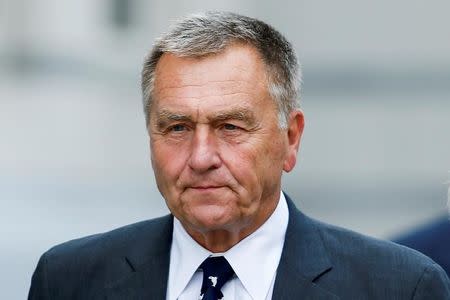United to pay $2.4 million over 'Chairman's Flight': U.S. SEC
By Sarah N. Lynch
WASHINGTON (Reuters) - United Airlines' parent company <UAL.N> will pay $2.4 million to resolve civil books and records violations after it reinstated an unprofitable flight route to accommodate the chairman of the Port Authority of New York and New Jersey, the U.S. securities regulator said.
The U.S. Securities and Exchange Commission said United Airlines' decision in December 2011 to add a nonstop flight between Newark, New Jersey and Columbia, South Carolina for then chairman David Samson's personal benefit harmed shareholders, who were forced to foot the bill.
The SEC said its investigation would continue.
Megan McCarthy, a spokeswoman for United Continental Holdings, said the company is pleased to have resolved the matter.
The SEC's civil case against United Airlines marks the latest in a series of legal actions involving the airline and Samson, who at one time was a close confidant of New Jersey Governor Chris Christie.
In July, Samson pleaded guilty in a parallel criminal matter for using his position to try to pressure the airline to accommodate his travel with a more convenient flight path, which prosecutors said Samson called the "Chairman's Flight."
At the time, the airline separately agreed to pay a $2.25 million penalty as part of a non-prosecution agreement with the government that also mandates improvements in the company's anti-bribery program.
The investigation into Samson and United Airlines grew out of a probe into the now infamous "Bridgegate" scandal in New Jersey, in which political associates of Christie shut down lanes on the George Washington Bridge.
Last month, two of those associates were convicted for their roles in the lane closures.
The airlines scheme involving Samson is unrelated to the lane closures on the bridge.
The SEC said on Friday that the flight route between New Jersey and South Carolina had previously been canceled by Continental - before its merger with United Airlines - because of poor financial performance.
Despite knowing the route was a money-loser, the airline caved to pressure by Samson to reinstate it amid concern that crossing him could harm its business interests.
The SEC added that it "circumvented its standard process for initiating new routes" and brought it back, costing the company approximately $945,000 before it ceased again.
(Reporting by Sarah N. Lynch; Editing by Grant McCool)


